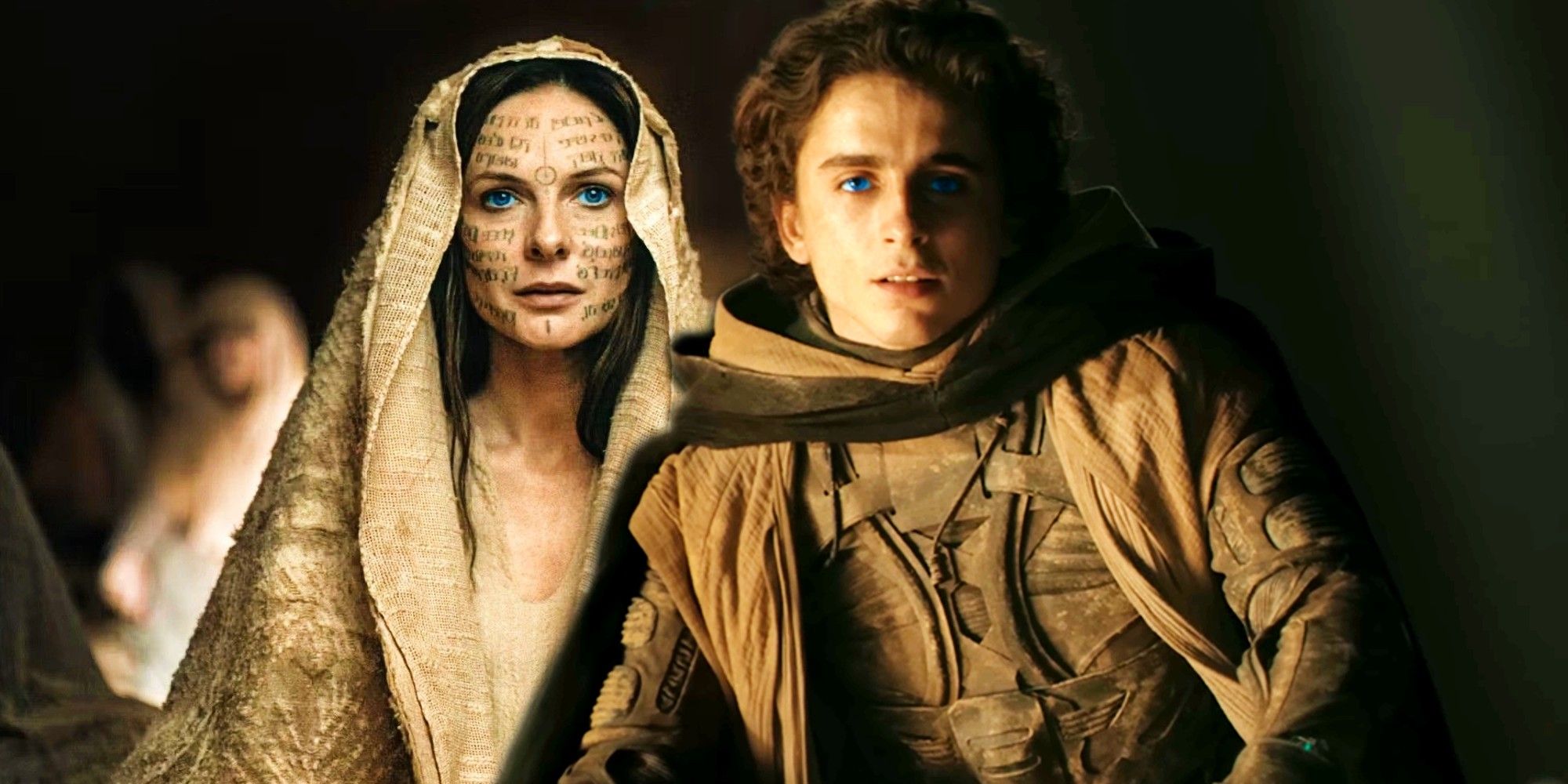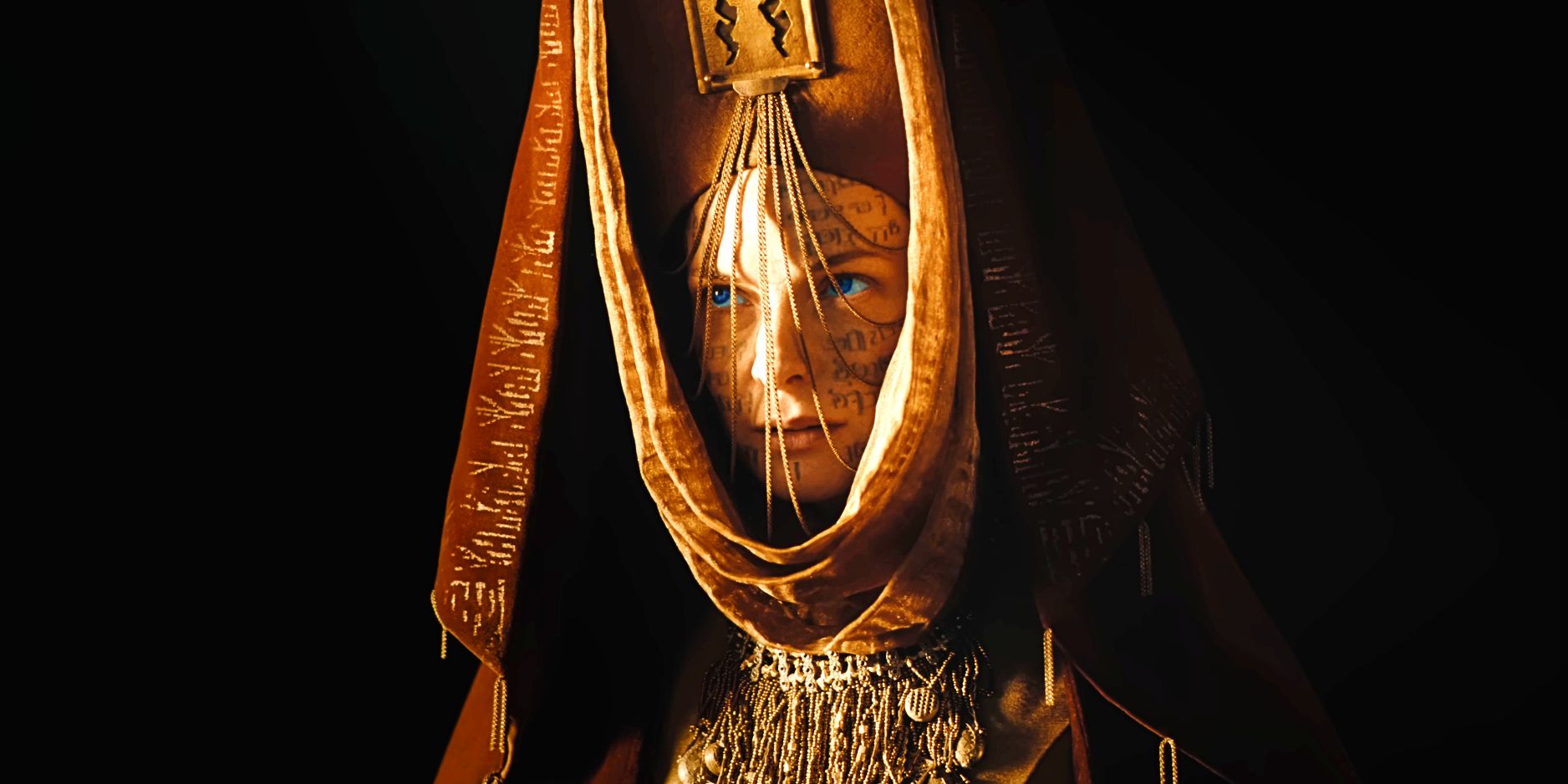Dune: Part Two makes a significant change from Frank Herbert’s novel, with director Denis Villeneuve explaining why the change was made.

Dune: Part Two director Denis Villeneuve explains one of the biggest changes the movie makes from the source material. This change concerns how Lady Jessica (Rebecca Ferguson) and her child, Alia Atreides (Anya Taylor-Joy), were adapted for the sequel, which covers the second half of Frank Herbert’s beloved 1965 novel. In the novel, Jessica drinks the Water of Life when she is pregnant, giving Alia the mind and powers of a Bene Gesserit Reverend Mother. Due to the adaptation’s more compressed timeline, Alia is not born by the end of the film, although she appears later in the story through a vision.
While speaking with Entertainment Weekly, Villeneuve explained the change that was made, which involves Jessica communicating with Alia as an embryo, voiced by Taylor-Joy. He appreciated the actor joining the Dune 2 cast and believed this change elevated Jessica’s role while pregnant and expressed how Alia becomes this “abomination.” He also thought it was an original idea that intensified Paul’s story as he was pressured to fulfill his destiny as the Messiah. While unsure of the audience’s reaction to this change, the director thought this modification still met the overall essence of Herbert’s book. Read Villeneuve’s comments below:
I was deeply happy with the fact that Anya accepted this challenge of playing a ghost and a secret. I cannot believe that we kept the secret that long. It required so much work to keep that secret. Everybody signed with their blood.
It came out of screenwriting discussions with Jon [Spaihts], when we were trying to figure out how to increase tension and create more momentum in the story. To put more pressure on Paul, we decided to compress time. We had this idea that we could create the feeling of the progression of time through Jessica’s pregnancy. I thought this was really fresh and original to have a character who is pregnant and still a powerful woman, a central figure of the story. I don’t remember having seen that, especially in a sci-fi movie, and it gave me the opportunity to develop ideas that were in the book. Having her talk to her fetus was a way to illustrate the power of the Water of Life, this substance that gives you access to the past lives of previous Reverend Mothers. It was a way to more precisely express how Alia becomes this abomination.
When we had this idea, it was like an epiphany for me. It was one of the final bricks of the screenplay. I don’t know how the fans will react, because it’s a strong curve that we took, but I felt that it was very close to the spirit of the book. I’m very happy with this idea.
Why Dune: Part Two’s Massive Alia Atreides Change Works

Jessica’s conversations with Alia also added another layer of complexity and tension to her relationship with Paul.
Dune: Part Two‘s Alia change is arguably the adaptation’s most significant and boldest deviation from the source material, yet it is an alteration that works. While pregnant, Jessica can fully maintain her agency and power as the Fremen’s Reverend Mother. Her conversations with the embryo inside her lend more insight into Jessica’s emotions and thought process throughout the story, offering the type of intimate inner monologue that usually doesn’t work in a movie. Jessica’s conversations with Alia also added another layer of complexity and tension to her relationship with Paul.
As for Alia herself, on the page, Herbert successfully executed the concept of a four-year-old who looks her age but speaks, acts, and thinks like a Bene Gesserit Reverend Mother. This would not have translated as well on the screen in a way that feels genuine. Taylor-Joy voicing Alia as an embryo and playing the character in the vision allows her to still be a central part of the narrative and an insightful character tied to key moments, all while further showcasing the Water of Life’s formidable power.
Not making these changes to Alia would’ve been particularly challenging when adapting her killing Baron Vladimir Harkonnen (Stellan Skarsgård) as she does in the source material. Paul Atreides (Timothée Chalamet) is the one to kill the Baron instead, a change to the story that fits well with Paul’s character arc during Dune: Part Two‘s ending. Alia being the one to help Paul learn about their Harkonnen heritage in the vision also ensured that she was still integral to that revelation and the Baron’s ultimate fate.


